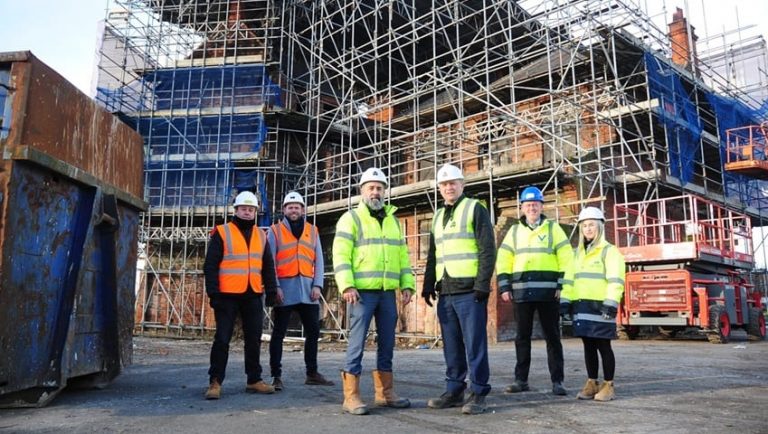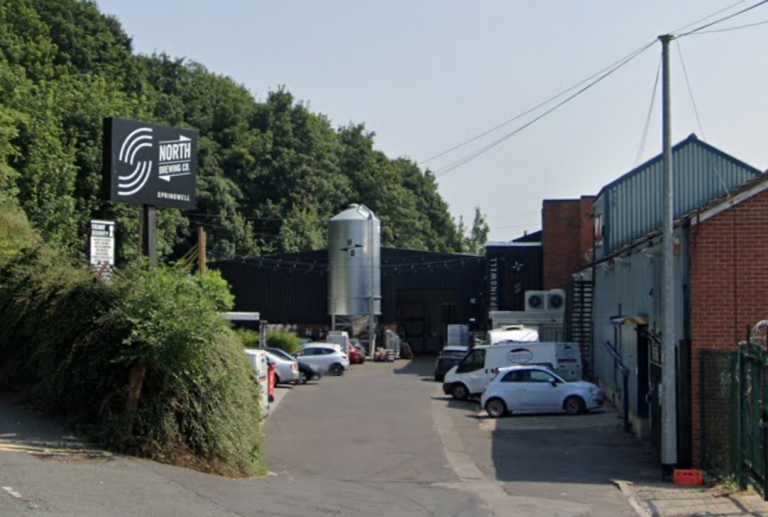Two Scunthorpe companies share in £2.5m Government’s Shared Prosperity Fund
Historic Hull buildings to be reborn in £2.5m project
South Lincolnshire business community shares in almost £2m cash awards from prosperity fund
- LCVS Community Transport : Looking to develop and enhance community transport infrastructure across the entire sub-region, aiming to increase the number of journeys available and volunteers taking part.
- Community-Based Digital Support Sessions :Using local venues across the Partnership area to support residents in our Districts (particularly in rural communities) to access digital services, go online and become digitally savvy , including supporting them to access key online services such as health providers and HMRC, as well as scam-awareness training.
- PAB Languages – Global Entrepreneurs : This project will provide a structured programme supporting the development of entrepreneurship and upskilling employees of our larger businesses to engage with export and international markets, drawing participants from people in employment in food processing, logistics, social care and e-commerce.
- Heritage Skills in South and East Lincolnshire :A Programme to encourage the development of traditional and ‘at risk’ heritage and craft skills, giving residents in our area the opportunity to try their hand at skills like lime plastering, traditional joinery and thatching, as well as supporting them to explore future careers in the heritage construction sector
- Connect2Grow : A project focussed on reducing economic inactivity in Boston and South Holland, helping individuals who are economically inactive or in receipt of universal credit skills training and support, identifying suitable vacancies, providing job interviews and follow-on in-work support.
- Higher Level Engineering Skills for South Lincolnshire’s Key Sectors : Working with local employers to build engagement, shape provision and strengthen local access to specialist higher level training in food and manufacturing engineering courses at the National Centre for Food Manufacturing. This will be supported by a Programme providing insight into the sector for local school-aged learners, giving them experiences of and hopefully, an interest in working in our area’s vital agri-tech and food industries.
- Future Skills Programme : Delivered by the TEC Partnership, this will deliver digital training to 100 economically inactive beneficiaries focused on digital employability skills including data management, design, multimedia and AI support, supporting this group to gain key digital skills and access employment with local employers
FirstGroup signs agreement to acquire York Pullman Bus Company
Future of North Brewing Co secured
First new development completed at South Yorkshire UK Investment Zone
Airfield runway specialist makes senior appointment
New investment boosts The Gluten Free Kitchen
Airport future: Chamber issues stern warning over mudslinging and electioneering
Could South Holderness be suitable for a nuclear waste disposal site?
“Understanding what a GDF is and exploring the associated benefits is critical to the decision-making process for any community, because it will ultimately be the local community who decide.”
Dr David Richards, independent Chair of the Working Group, said: “The South Holderness GDF Working Group marks the beginning of finding out more about what a GDF is and gives our community an opportunity to share their thoughts about what it means for them. “We want to work with local communities to discuss the potential of a GDFand the establishment of a Community Partnership, which if formed would benefit local good causes through grants of up to £1million pounds per year.“My role as Chair is to make sure local communities have access to information and to understand what people think about a GDF. We look forward to meeting local people and listening to their views.”
A GDF is internationally recognised by governments and scientists as the only viable permanent solution for the safe disposal of higher-activity radioactive waste in the long-term. It involves isolating the waste deep underground in suitable geological formations, placing it in highly engineered vaults and tunnels, keeping the waste safe and secure over the many thousands of years it will take for the radioactivity to naturally reduce. NWS will be a member of the South Holderness GDF Working Group, along with the independent Chair, David Richards, Invest East Yorkshire (the Interested Party), East Riding of Yorkshire Council and members of the community. NWS CEO Corhyn Parr, said: “South Holderness joins three other communities involved in the GDF siting process who are already learning more about this vital project and the benefits and opportunities it could bring, such as the creation of thousands of jobs and opportunities for investment in local infrastructure. “We are looking forward to meeting local people, providing more information, answering questions, and listening to all views. This is a consent-based process, meaning if the community does not express support for a GDF it won’t be built there.”











